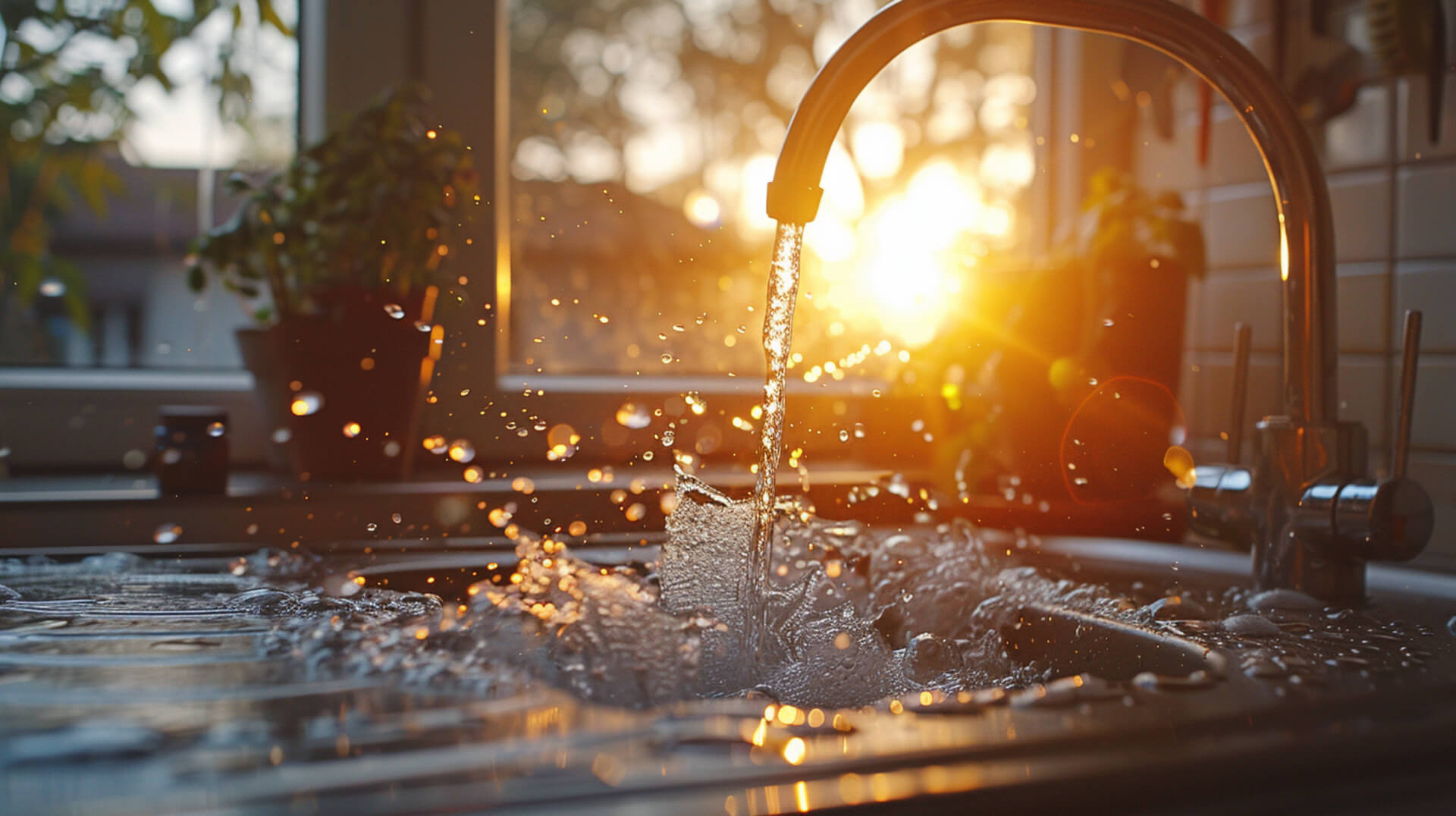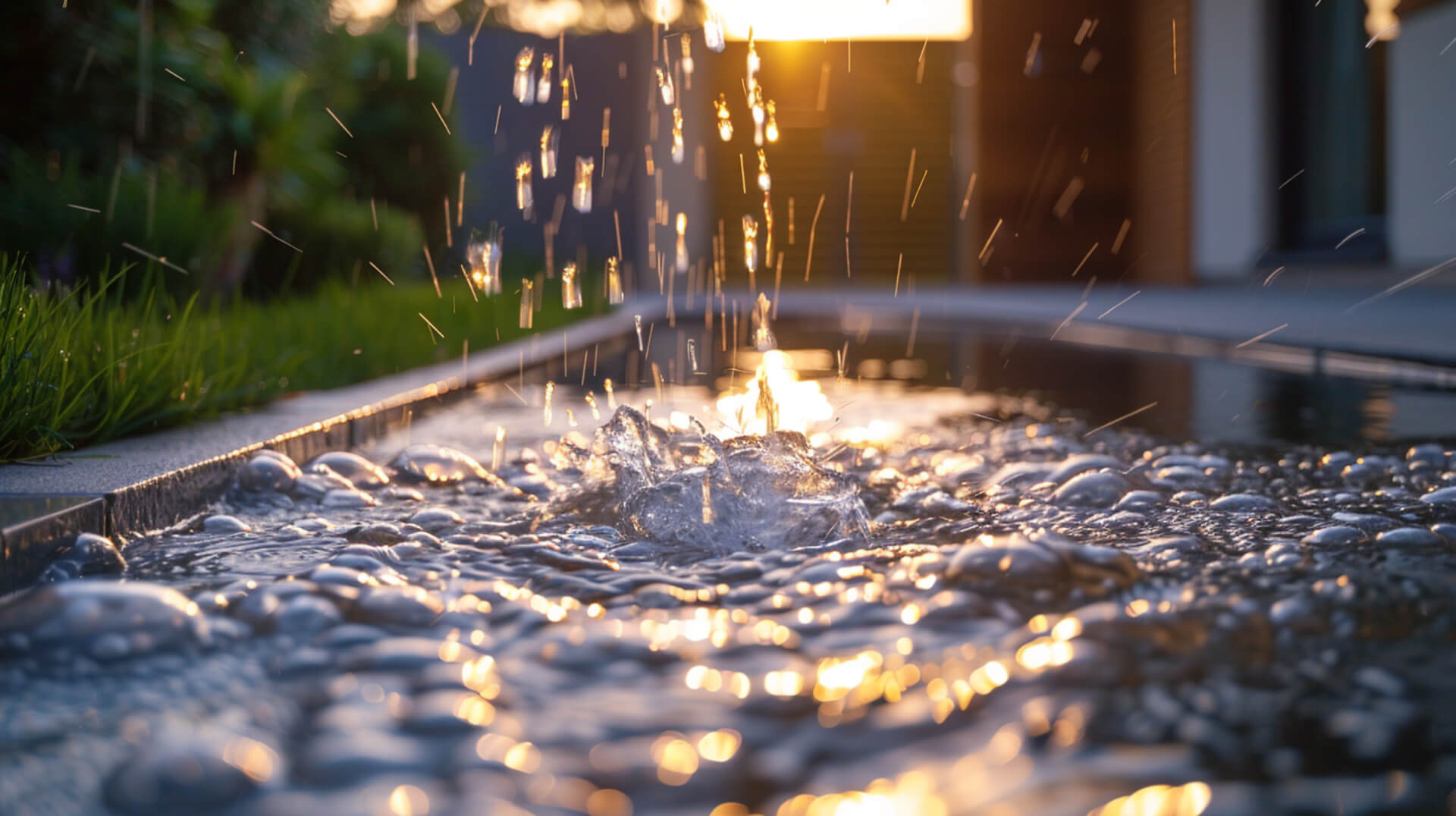 How Often Should Drainage Pipe Descaling Be Done
How Often Should Drainage Pipe Descaling Be Done

Descaling is a critical maintenance process for drainage systems, aimed at removing mineral deposits, known as scale, that accumulate inside pipes. These deposits can significantly impede water flow and reduce the efficiency and longevity of a plumbing system. Scale buildup is primarily caused by the precipitation of minerals from hard water, which can solidify and adhere to the interior surfaces of pipes.
Why Descaling is Necessary
Regular descaling is essential to prevent the narrowing of pipes and to maintain optimal water pressure. Without it, scale can lead to blockages, increased stress on pipes, and ultimately, the premature failure of the drainage system. Descaling ensures that pipes remain clear, which is vital for the health of both residential and commercial plumbing systems.
Impact of Scale Buildup
The efficiency of a drainage system is directly affected by the presence of scale. As scale accumulates, it restricts water flow, leading to inefficiencies and potential damage. Over time, the buildup can cause corrosion, leaks, and even complete pipe failure, necessitating expensive repairs or replacements.
Primary Causes of Scale and Mineral Buildup
Hard water is the main culprit behind scale formation. It contains high levels of calcium and magnesium, which precipitate out when water is heated, forming scale. Other contributing factors include pH imbalances in water and the presence of other dissolved solids.
Addressing Your Concerns
This guide is designed to provide you, the property owner, business owner, or facility manager, with a clear understanding of the descaling process. It will help you recognise the signs of scale buildup, understand the importance of regular maintenance, and make informed decisions about the care of your drainage system.
The Importance of Regular Descaling for Drainage Health

Regular descaling is a critical maintenance task for drainage systems. It involves the removal of mineral deposits, known as scale, that accumulate inside pipes over time. These deposits can significantly impede water flow and reduce the efficiency of the drainage system.
Why Regular Descaling is Crucial
Descaling is essential to maintain the optimal function of drainage systems. Scale buildup can lead to reduced water pressure and flow rate, which may cause backups and slow drainage. Regular removal of these deposits ensures that pipes remain clear, allowing for the free flow of wastewater.
Consequences of Neglecting Descaling
Ignoring the need for descaling can result in the deterioration of pipe integrity. Over time, the persistent scale can cause corrosion, leading to leaks, bursts, and potentially extensive water damage. The costs associated with repairing or replacing damaged pipes can be substantial, not to mention the inconvenience and potential health risks posed by sewage backups.
Long-Term Benefits of Proactive Descaling
Proactive descaling practices extend the lifespan of drainage systems, reduce the likelihood of emergency repairs, and can lead to significant cost savings over time. By maintaining a clear and efficient system, property owners can avoid the disruptions and expenses associated with unscheduled maintenance and system failures.
Environmental Sustainability and Descaling
Environmentally sustainable descaling practices, such as the use of eco-friendly techniques, contribute to the conservation of resources. By choosing methods that minimise environmental impact, property owners can ensure that their maintenance activities align with broader ecological values and regulations.
Identifying the Need for Descaling: Key Signs and Symptoms

Recognising when your drainage system requires descaling is crucial for maintaining its efficiency and longevity. There are several indicators that can alert you to the presence of scale buildup.
Visible Signs of Scale Buildup
If you notice a decrease in water flow or an increase in the frequency of clogs, it may be time to consider descaling. These symptoms suggest that scale has accumulated to a point where it is obstructing the normal function of your drainage system.
The Implications of Reduced Water Flow and Frequent Clogs
Reduced water flow can be more than just a minor inconvenience. It often signifies that scale is narrowing the interior of the pipes, which can lead to increased pressure and potential pipe damage. Frequent clogs, similarly, can indicate that scale is providing a surface for debris to adhere to, exacerbating blockages.
The Importance of Prompt Action
Addressing these symptoms promptly can prevent more severe issues, such as leaks or burst pipes, which can be costly to repair. Early intervention can also help maintain the optimal performance of your drainage system.
Role of Regular Inspections
Regular inspections by professionals can help detect scale buildup before it becomes problematic. Technicians can use tools like CCTV surveys to assess the condition of the pipes and recommend descaling if necessary. This proactive approach can help you avoid the disruptions and expenses associated with emergency maintenance.
Frequency of Descaling: Factors to Consider

Determining the optimal frequency for descaling operations involves assessing various factors that can affect the health of your drainage system.
Influence of Pipe Material and Water Hardness
The material of your pipes plays a significant role in how often descaling is needed. Cast-iron pipes, for example, are more prone to corrosion and scale buildup and may require more frequent descaling. Water hardness is another critical factor; areas with hard water typically experience faster scale accumulation due to higher mineral content, necessitating more regular descaling.
Relevance of Plumbing System Age
The age of your plumbing system can also impact descaling schedules. Older systems may have years of accumulated scale, requiring more immediate and possibly more frequent descaling to restore and maintain proper function.
Impact of Property Usage on Descaling Needs
Finally, the level of usage and occupancy of a property can affect descaling needs. High-traffic commercial or industrial properties, or residential buildings with multiple occupants, may see quicker scale buildup due to increased water usage, leading to a need for more regular descaling to prevent blockages and maintain efficient water flow.
Descaling Techniques: Chemical, Mechanical, and Natural Methods

When considering the descaling of drainage pipes, various methods are available, each with its own set of benefits and considerations. Understanding the differences between these techniques is essential for selecting the most appropriate approach for your property’s needs.
Chemical Descaling Methods
Chemical descaling involves the use of specialised solutions designed to dissolve mineral deposits within pipes. This method is:
- Effective for significant scale buildup.
- Rapid in action, providing quick results.
- Potentially hazardous, requiring careful handling and disposal to mitigate environmental impact.
Mechanical Descaling Techniques
Mechanical methods, such as hydro jetting, physically remove scale using high-pressure water streams. These techniques are:
- Thorough, as they can address not only scale but also other obstructions.
- Less chemically intensive, reducing potential environmental harm.
- Dependent on professional expertise to ensure safety and prevent pipe damage.
Natural Descaling Alternatives
Natural descaling options utilise eco-friendly substances to break down scale. These methods are:
- Safer for the environment and the property’s occupants.
- Gentler on the plumbing system, making them suitable for older pipes.
- Variable in effectiveness, often requiring more time to achieve desired results.
Enhancing Descaling with Technology
Advanced technology, such as CCTV surveys, can significantly enhance the effectiveness of descaling by:
- Identifying specific problem areas within the drainage system.
- Allowing for targeted descaling, which can be more efficient and cost-effective.
- Preventing unnecessary work, as only the affected sections need to be treated.
By considering these factors, you can make an informed decision on the descaling method that best suits your property’s requirements, balancing effectiveness, safety, and environmental impact.
Professional Services vs. DIY: Making the Right Choice

When it comes to descaling drainage pipes, property owners face the decision between hiring professional services and attempting a do-it-yourself (DIY) approach. Each option has its own set of advantages and potential drawbacks.
Advantages of Professional Descaling Services
Professional descaling services offer several benefits:
- Expertise: Technicians are trained to handle complex descaling tasks safely and effectively.
- Advanced Tools: Professionals use state-of-the-art equipment, such as hydro jetting machines and CCTV for precise diagnostics.
- Time-Efficiency: With their experience, professionals can complete the job quickly, minimising disruption to your routine.
- Long-Term Solutions: Professionals can provide long-lasting results, reducing the frequency of future descaling needs.
Limitations of DIY Descaling Methods
While DIY methods can be appealing for their perceived cost savings, they may fall short in several areas:
- Effectiveness: DIY solutions may not be as effective at removing stubborn scale buildup.
- Risk of Damage: Without the proper tools and knowledge, there is a higher risk of damaging the pipes.
- Safety Concerns: Handling chemicals or equipment without expertise can pose safety risks.
Impact on Long-Term System Health
The choice between professional and DIY descaling can significantly affect the long-term health of your drainage system. Professional services ensure that the job is done correctly, preserving the integrity of the pipes and preventing future issues. Conversely, inadequate DIY descaling can lead to recurring problems and potential system failure, which may incur greater costs over time.
Preventive Maintenance: A Strategy for Minimising Descaling Needs
Implementing a regular maintenance routine is instrumental in reducing the frequency of descaling interventions for drainage systems. By taking proactive steps, you can significantly diminish the rate of scale accumulation.
Implementing Preventive Measures to Avoid Scale Buildup
To prevent scale from forming, consider the following actions:
- Regular Cleaning: Periodic flushing of the system with water can help remove early deposits before they harden.
- Water Softeners: Installing water softeners can reduce mineral content in the water, slowing down scale formation.
- Strainers: Use strainers in sinks and drains to catch debris that can contribute to scale buildup.
The Importance of Customised Maintenance Plans
Each drainage system is unique, influenced by factors such as water quality, usage patterns, and pipe material. A maintenance plan tailored to these specific conditions ensures that the right preventive measures are in place, optimising the health of your drainage system.
Contribution of Regular Cleaning and Inspections
Consistent cleaning and professional inspections play a pivotal role in maintaining system longevity. Inspections, particularly those utilising advanced tools like CCTV surveys, can identify potential issues before they escalate, allowing for timely descaling and maintenance. This proactive approach not only extends the life of your drainage system but also maintains its efficiency and reliability.
Environmental Considerations in Descaling Practices

Incorporating environmental considerations into descaling practices is not only a matter of regulatory compliance but also a reflection of a growing societal commitment to sustainability. Property owners are increasingly recognising the importance of selecting descaling methods that minimise ecological impact.
Choosing Eco-Friendly Descaling Solutions
For those looking to adopt eco-friendly descaling practices, several options are available:
- Biodegradable Chemicals: Opt for descaling agents that break down harmlessly in the environment.
- Mechanical Methods: Use mechanical descaling techniques, like hydro jetting, which do not introduce chemicals into the ecosystem.
- Natural Remedies: Consider natural alternatives that use less abrasive materials and reduce the risk of environmental contamination.
The Role of Environmental Awareness
Environmental awareness influences the selection of descaling services in several ways:
- Service Selection: You may prioritise companies that demonstrate a commitment to using environmentally responsible methods.
- Compliance with Regulations: Ensure that the chosen descaling practices adhere to local environmental regulations and standards.
- Community Impact: By choosing eco-friendly services, you contribute to the overall well-being of the community and environment.
Benefits to Property and Community
Eco-friendly descaling practices offer benefits that extend beyond the immediate property:
- Preservation of Local Ecosystems: Reduced chemical runoff helps protect local waterways and wildlife.
- Health and Safety: Minimising the use of harsh chemicals can improve the health and safety conditions for occupants and technicians.
- Long-Term Viability: Sustainable practices ensure the long-term viability of the property’s drainage system and the surrounding environment.
The Role of Advanced Technology in Effective Descaling

In the realm of drainage maintenance, the integration of advanced technology has revolutionised the descaling process, enhancing both the precision and efficiency of services provided.
Advancements in Descaling Tools and Technologies
Advanced tools and technologies have a significant impact on the outcomes of descaling operations:
- CCTV Surveys: Utilising closed-circuit television for pipe inspections allows for accurate assessments of scale buildup and blockages.
- Hydro Jetting: High-pressure water jets effectively remove scale, debris, and blockages without the need for harsh chemicals.
- Resin Lining: This technique reinforces pipes post-descaling, extending their lifespan and improving flow efficiency.
Importance of Accredited Technicians
The expertise of accredited technicians is crucial in the descaling process:
- Specialised Training: Technicians with specialised training can operate advanced equipment safely and effectively.
- Quality Assurance: Accreditation ensures that technicians adhere to industry standards, providing reliable and high-quality service.
Necessity of Mobile Units and 24/7 Availability
Mobile units equipped with the necessary tools and 24/7 service availability are essential for addressing emergency descaling needs:
- Rapid Response: Mobile units enable technicians to respond quickly to urgent descaling requests.
- Around-the-Clock Service: Offering services at any time ensures that you can address drainage emergencies without delay.
Customised Solutions for Diverse Systems
Technology plays a pivotal role in tailoring descaling solutions to the specific needs of both modern and older drainage systems:
- Diagnostic Precision: Advanced diagnostics allow for customised descaling plans that target specific issues within the system.
- System Compatibility: Technological versatility ensures that both new and aged systems receive appropriate and effective descaling treatments.
Pricing and Availability: What to Expect from Descaling Services

When considering descaling services for drainage systems, understanding the pricing and availability is essential for property owners to ensure they are making an informed decision that provides value for their investment.
Transparent and Competitive Pricing Models
Descaling services should offer transparent pricing models that clearly outline costs without hidden fees. This transparency allows you to budget effectively and compare services to ensure competitive rates. Look for:
- Itemised Quotes: Detailed breakdowns of services and associated costs.
- No Hidden Fees: Assurance that the quoted price is comprehensive.
Emergency Service Charges
Emergency descaling services are crucial for unexpected blockages or scale buildup. Providers that do not charge extra for emergencies offer significant value, as they ensure that you can address urgent issues without incurring additional costs. Consider services that offer:
- 24/7 Availability: Access to descaling services at any time, without extra charges for after-hours or holiday work.
- Rapid Response: Commitment to prompt service to minimise the impact of drainage emergencies.
Evaluating Service Availability
When selecting a descaling service, availability is as important as cost. Reliable providers should have:
- Flexible Scheduling: Accommodation of your timetable for routine maintenance.
- Mobile Units: Readily available equipment and technicians for efficient service delivery.
Ensuring Value for Investment
To ensure you are receiving value for your investment in descaling services, verify that the provider uses:
- Advanced Tools: Such as CCTV surveys for accurate diagnostics.
- Accredited Technicians: Qualified professionals who can deliver high-quality services.
By considering these factors, you can select a descaling service that offers transparent pricing, reliable availability, and quality service, ensuring the health and longevity of your drainage system.
Health and Safety Protocols During Descaling Operations

Ensuring the health and safety of both technicians and property occupants during descaling operations is paramount. Service providers must adhere to stringent protocols to safeguard all parties involved.
Essential Health and Safety Measures
During descaling, the following measures are typically enforced:
- Use of Personal Protective Equipment (PPE): Technicians should wear appropriate PPE, such as gloves, goggles, and masks, to protect against chemical exposure and other hazards.
- Adherence to COVID-19 Guidelines: Compliance with current health regulations, including social distancing and sanitization practices, to prevent the spread of the virus.
Protection Offered by PPE and COVID-19 Protocols
Strict PPE and COVID-19 protocols serve multiple protective functions:
- Technician Safety: Protects those performing the descaling from direct contact with harmful substances and potential health risks.
- Occupant Safety: Ensures that property occupants are not exposed to descaling agents or other risks during the service.
The Importance of Health and Safety Standards
Choosing a service provider that prioritises health and safety standards is critical:
- Professionalism: Reflects the provider’s commitment to delivering services responsibly.
- Reliability: Indicates a provider’s dedication to maintaining high industry standards.
Reflection of Service Quality
Health and safety protocols are a direct reflection of the quality and reliability of descaling services. Providers that invest in comprehensive safety measures demonstrate a commitment to excellence and customer care.
Planning Effective Descaling Schedules

For property, business owners, and facility managers, establishing a descaling schedule is a proactive step towards maintaining the health of drainage systems. This schedule should be based on several factors, including the hardness of the water, the age and material of the pipes, and the level of usage the system experiences.
Holistic Approach to Drainage Health
A holistic approach to drainage health considers all aspects of the system, from daily operations to environmental impact. This comprehensive view ensures that descaling is part of a broader maintenance strategy, aimed at preserving system efficiency and extending its lifespan.
Key Takeaways for Drainage Maintenance
To maintain optimal drainage health:
- Monitor: Keep an eye on water flow and drainage efficiency.
- Schedule: Plan regular inspections and descaling to prevent scale buildup.
- Choose: Select appropriate descaling methods that align with your system’s needs and environmental considerations.
Empowering Informed Decisions on Descaling
This guide provides the necessary information for you to make informed decisions regarding the descaling of drainage pipes. By understanding the importance of regular maintenance, the signs that indicate a need for descaling, and the methods available, you can ensure the longevity and efficiency of your drainage system.
